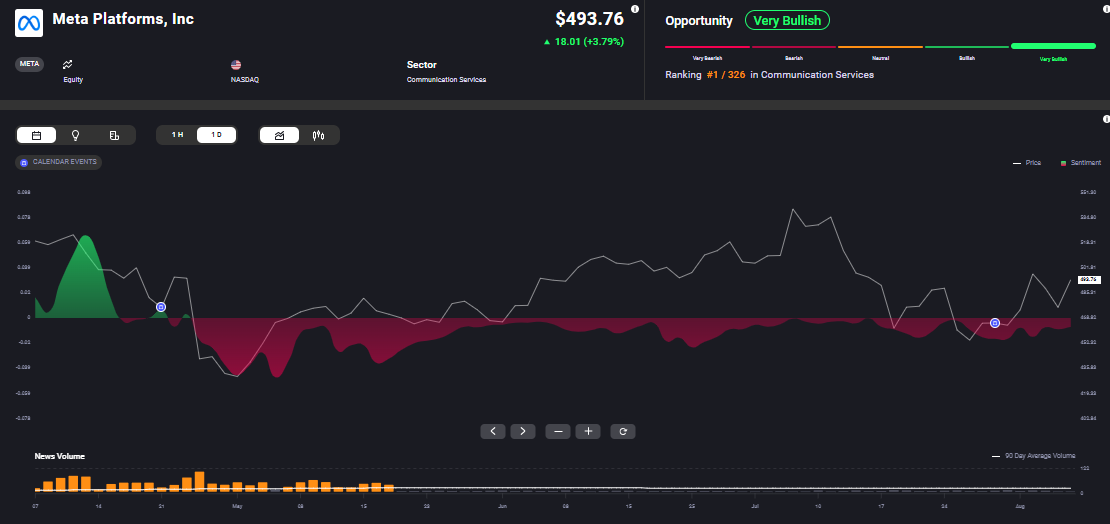After recording historic highs in the first half of the year, mega-cap tech stocks were among the biggest losers in a sell-off at the beginning of August 2024. The Magnificent Seven lost at least 3% on August 5, with Nvidia tanking more than 6%, Alphabet down 4% and Meta Platforms shedding over 2%. As a result, the Magnificent Seven lost over $650 billion in valuation by market close. What’s fuelling this shift in sentiment towards tech?
CrowdStrike’s stock plunged over 11% following the news, despite CEO George Kurtz releasing a statement that said, “This is not a security incident or cyberattack. The issue has been identified, isolated and a fix has been deployed.” Kurtz also assures that the defect was only in one content update and the problem was fixed quickly.
What does all this mean for CrowdStrike and other cybersecurity stocks?
Are Earnings Reports the Reason for the Sell-Off?
Alphabet kicked off the earnings season for Big Tech, reporting its EPS at $1.89 against the consensus of $1.84 and revenue of $84.74 billion versus expectations of $84.19 billion, representing 14% y-o-y growth. Yet, the stock declined about 2% in after-hours trading.
Amazon, on the other hand, reported its net sales below expectations with a lower-than-estimated 3Q net sales guidance. This led to investor concerns regarding the company’s massive investments in AI. The stock fell 9% following the announcement. Tesla’s fate was no better, with the stock declining 15.5% after the company reported disappointing profits for another quarter, largely due to the impact of EV discounts. Microsoft’s revenue also fell short of expectations. The stock tanked 6%, taking its market cap down to $3.1 trillion.
The AI stock favourite, Nvidia, is scheduled to report its earnings on August 28. The consensus EPS estimate for the quarter stands at $0.59, compared to the reported EPS of $0.25 for the same quarter in 2023. Nvidia declined almost 15% through July. Will the results allay investor fears regarding the AI bubble being on the brink of bursting? Acuity’s AssetIQ widget reveals a bearish sentiment for the stock.

Multiple Factors at Play
The sentiment on Big Tech was cooling even before the 2Q results were out. Expectations of a potential rate cut by the Fed in September are leading investors to look at more value-oriented sectors, in what the Wall Street Journal called “a stock-market rotation of historic proportions”. The news of Berkshire Hathaway cutting its stake in Apple in half didn’t help either, raising concerns regarding the future of the tech sector. Apple’s stock declined 8.3% after the announcement amid a wider tech sell-off.
Geopolitical tensions have also been weighing heavily on tech, especially chip stocks. However, one of the major concerns is whether the colossal spending on chips and AI will bear fruit anytime soon. During Alphabet’s earnings call, Google CEO Sundar Pichai struggled to justify the company’s capex growing to $13 billion during the quarter, from $6.9 billion in the same period last year.
Susan Li, Meta Platforms’ CFO, also expects “significant capex growth” for the company in 2025, with Meta likely to spend up to $40 billion on AI-related R&D. But Meta was also the rare tech stock that didn’t take a hit after detailing its AI spending plans. The stock rallied following the strong 2Q report, with better-than-expected growth in its advertising business. The market sentiment on the stock continues to be very bullish, as seen on Acuity's AssetIQ market analysis widget.

Meanwhile, Microsoft expects AI monetisation over the coming 15 years or more. The sell-off in Microsoft’s stock, which was down over 12% through July, reflects disappointment among investors who were hoping for quicker monetisation.
Another factor dampening market sentiment is weak US economic data. The July employment data was well below expectations with the US economy adding a mere 114,000 jobs while the unemployment rate soared to its highest since October 2021. The manufacturing data was also significantly below consensus sparking concerns regarding a potential US recession.
The weak economic data has also led to expectations that the Fed might need to aggressively cut interest rates in the coming months to bolster the US economy.
As a result, the major US indices saw their worst sell-off and single-session declines since September 13, 2022, with the Nasdaq Composite down 3.4%, the S&P 500 losing 3% and the Dow Jones Industrial Average shedding 2.6% on August 5. The Nasdaq Composite is down more than 11% over the past month. Despite these losses, market opportunity on the Nasdaq 100 remains bullish, as seen on Acuity’s AssetIQ tool.

The massive downturn in US stocks on August 5 wiped out $6.4 trillion, with some calling it the “Great Unwind.” Despite fears of a slowdown in the US economy, the stock market again exhibited great resilience. Investors jumped back into the market, sending both the S&P 500 and Nasdaq 100 higher by 1% on August 6.
Market expectations of interest rate cuts by the Federal Reserve are supporting sentiment for growth stocks. Investors widely expect the Fed to cut its benchmark rate at its September meeting. Also, several companies are yet to report their second-quarter results, which could define how the market moves ahead.